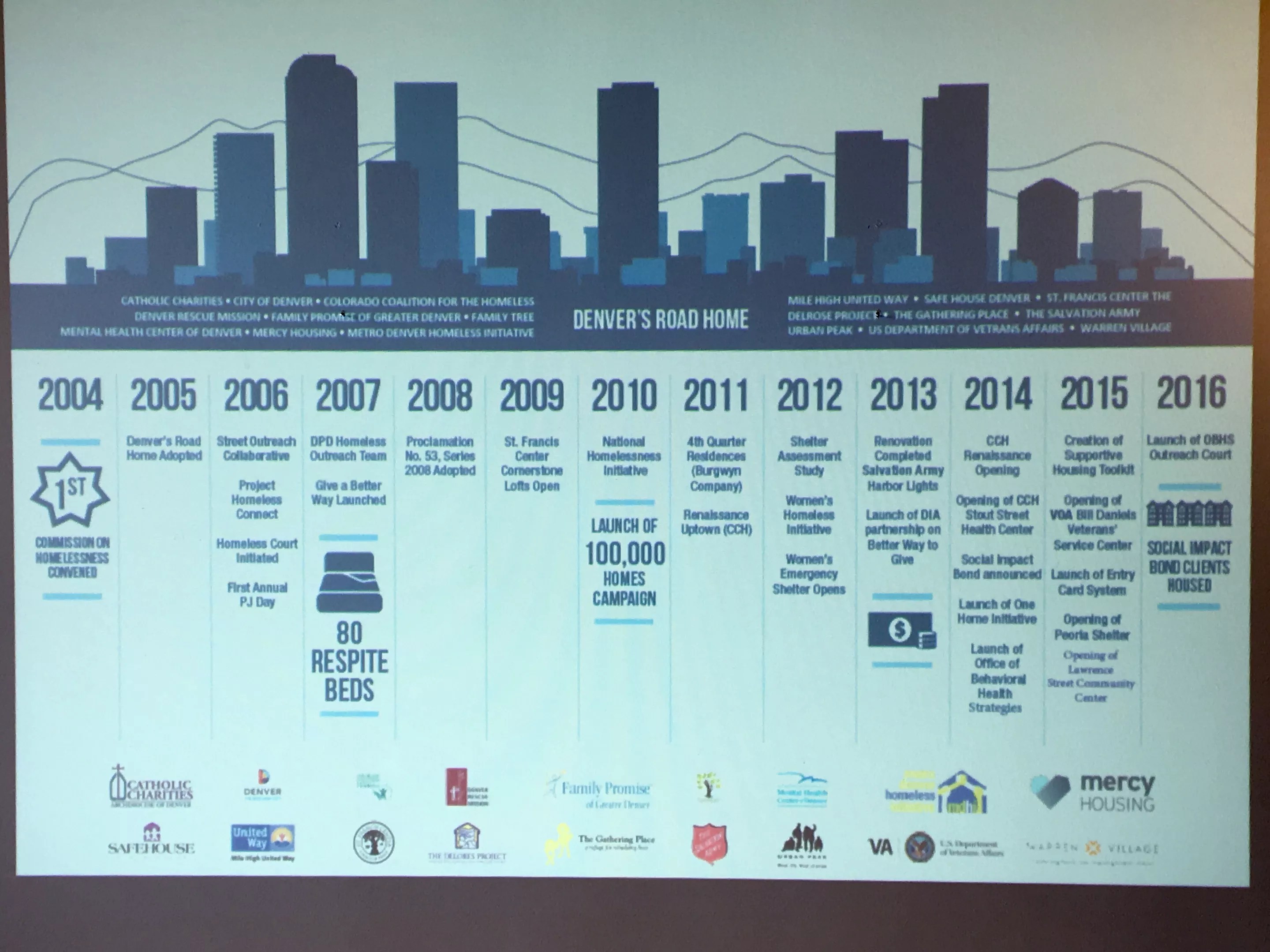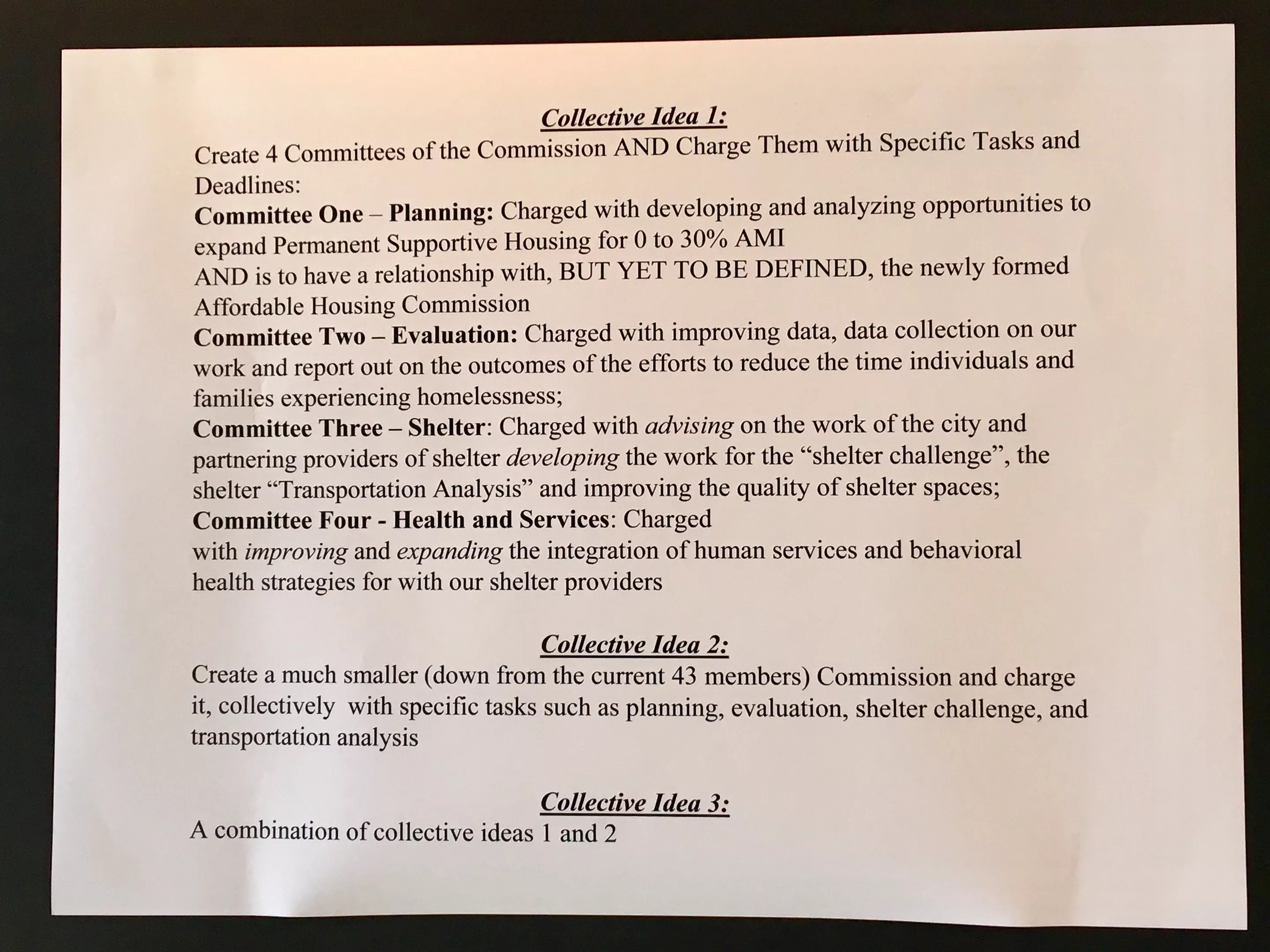
chris walker

Audio By Carbonatix
“There’s been frustration, there’s been some angst,” Erik Soliván acknowledged before Denver’s 45-member Commission to End Homelessness.
That includes commission members struggling with “finding a reason to come to these meetings and finding a direction,” he added.
“I hear you. I want to begin a new dialogue and ask all of you to re-engage in this work and find a way to work past our differences,” Soliván told the commission at a meeting in RiNo on Monday, February 27.
As the newly appointed director of the Office of Housing and Opportunity for People Everywhere (HOPE), which was announced by Mayor Michael Hancock at his July 11, 2016, State of the City Address, Soliván is a new player on the fourteen-year-old Commission to End Homelessness.
The body that he’s attempting to rejuvenate has been around since 2003, when then-mayor John Hickenlooper brought together the coalition of homeless service providers, city officials, business representatives and individuals experiencing homelessness to advise on a “ten-year plan to end homelessness.” The group also helped to create an agency within the city government called Denver’s Road Home.
But since 2013, when the ten-year plan concluded, there have been questions about the commission’s role in Denver. It has canceled meetings, seen the resignation of high-profile members, and has been questioned about a lack of communication between it and the city.
In March 2016, Westword covered a contentious meeting that occurred right after a large-scale homeless sweep dismantled encampments in the Ballpark neighborhood. At that meeting, commission members grilled then-commission head Bennie Milliner of Denver’s Road Home about the sweep, and wanted to know why Mayor Hancock didn’t show up to the meeting as scheduled. Some commissioners also questioned why they weren’t notified of the sweep before reading about it in the newspapers. It wasn’t the first time that they hadn’t been briefed or consulted before major initiatives; commission members also told Westword that they weren’t consulted about the camping ban before it was introduced to Denver’s City Council in 2012.
Problems with the commission also flared up in September last year, when one of the original members, Leslie Foster of the Gathering Place, sent the entire commission a letter of resignation:
Dear All,
After some difficult deliberation, I have decided to step down as a member of the Mayor’s Commission to End Homelessness, effective immediately. It appears that the focus of the Commission, and the programs administered through Denver’s Road Home, are shifting in emphasis away from the women we serve and the programs we administer at The Gathering Place.
Funds from Denver’s Road Home were critical to ensuring our success. Sadly, we were told before the latest [request for proposal] was issued that our program would probably not meet the priorities of Denver’s Road Home any longer.
In a subsequent conversation with Westword, Foster said that being told that the Gathering Place, a shelter for women, children and transgender individuals, wouldn’t qualify for funding was a shock. “Clearly, I do not know what the priority of the commission is, then,” she said.
“And I had been already debating whether to stay with the commission. [It] is not, in my opinion, being used at this point for up-front advice and support,” Foster continued.
“In the early years, there was progress. Just writing the ten-year plan [to end homelessness] – which heaven knows was not a perfect plan, because people can rip through it in hindsight – was, at the time, huge. The commission was taking votes, setting goals, setting priorities. We had a lot of discussions, and I felt like I had decision-making power.”
Despite her disappointment, Foster believes the commission can be proud of a number of accomplishments, especially during its first ten years.
At this week’s meeting, Soliván displayed these accomplishments on a projected graphic:

chris walker
While he has only been at his job at the Office of HOPE for 49 days – having been hired from Philadelphia to head up the new department – Soliván has been meeting with members of the commission, as well as with outside groups like Denver Homeless Out Loud and ASAP, to find out how to move forward.
“I want to begin to open a dialogue about how we can repurpose this commission,” he told the group on Monday. “My hope and request to all of you is that we find some common ground. “
He announced that the meeting was the first of two. “In March, I’ll ask you all to come back,” he said. “Join this journey with me.”
Soliván then unveiled three different options to restructure the commission. “My goal is to have this body be a functioning body that can make decisions about how we engage in this work,” he said.

Three proposals to restructure the commission
chris walker
Soliván promised to facilitate more dialogue about controversial practices like the camping ban and homeless sweeps, as well as provide more communication about law enforcement operations to commission members before those operations happen.
“The clear, universal frustration is that there isn’t open communication,” he said of the commission. “My charge, at the outset and over the last 49 days, is: Let’s open those lines of communication. We need to do better on our end, and that also goes both ways.”
“The real work begins in March,” he said.